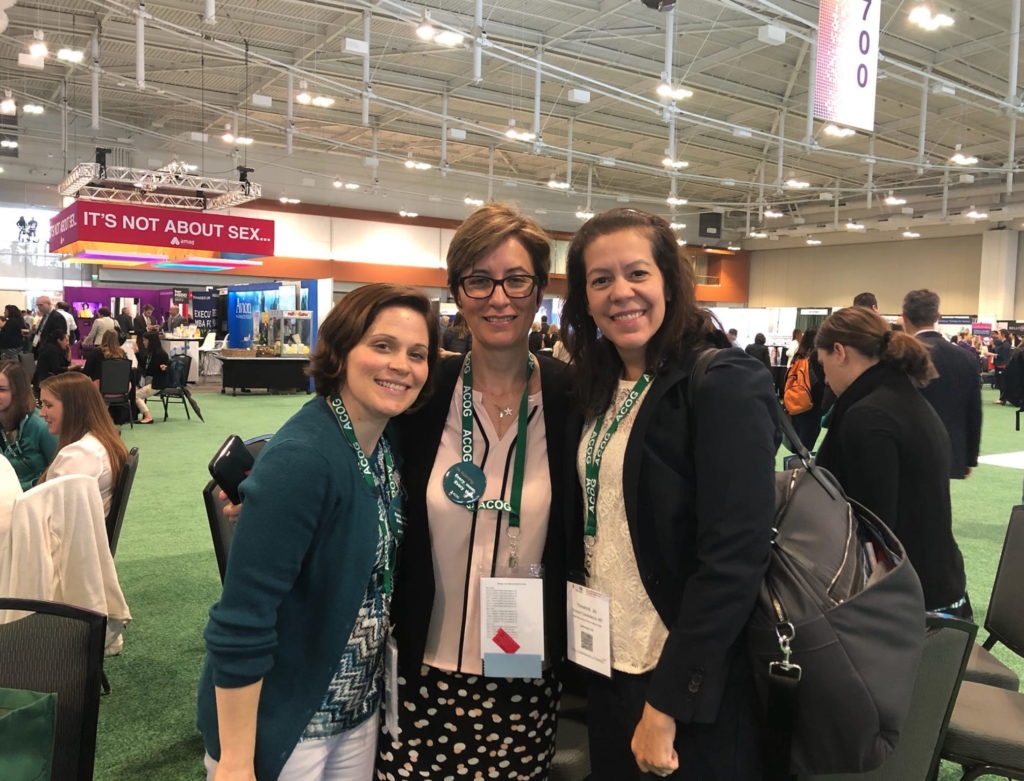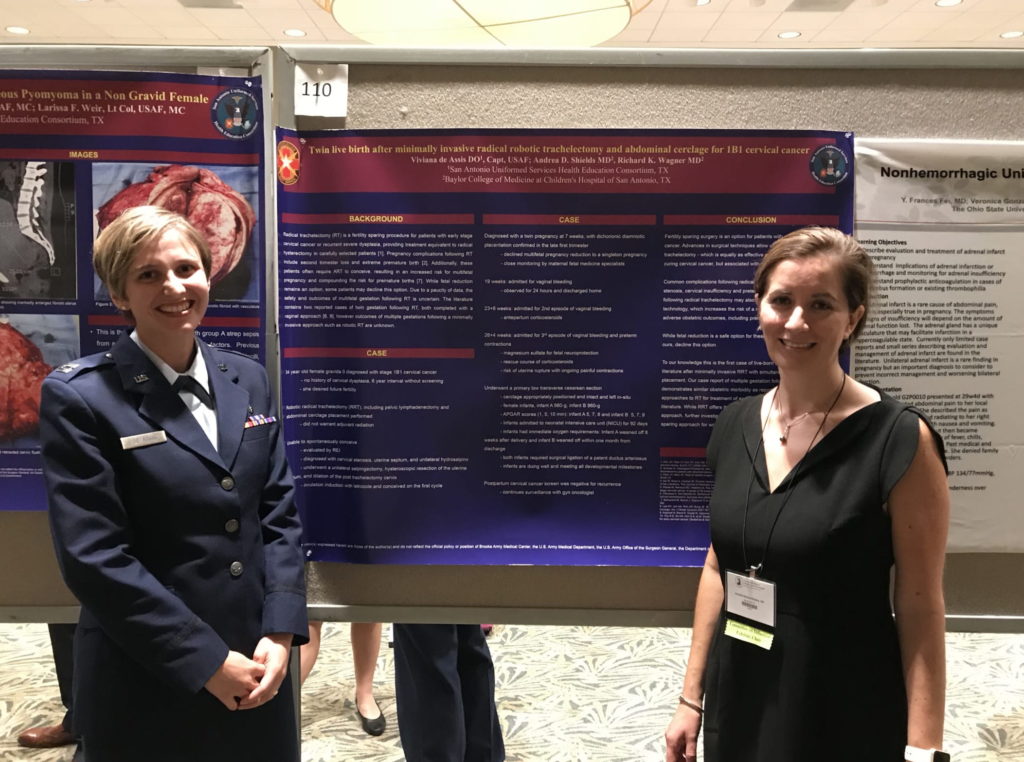Final Words: Andrea Shields, M.D., F.A.C.O.G.
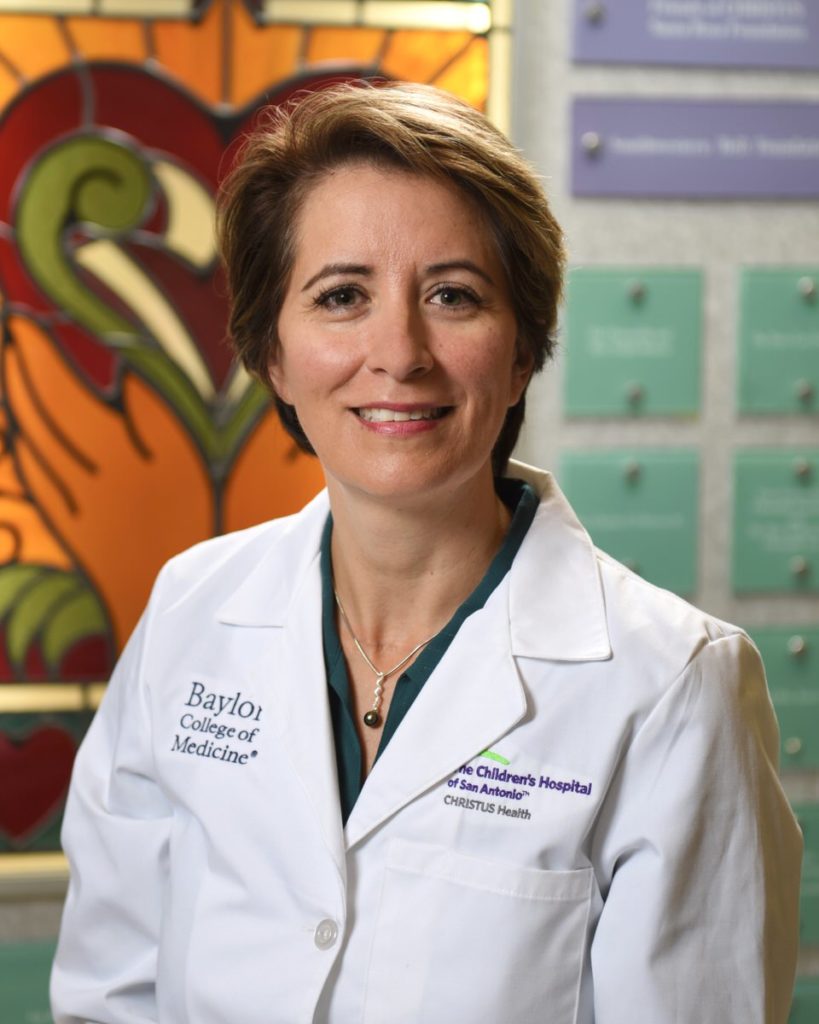 Your name, program, dissertation title.
Your name, program, dissertation title.
Name: Andrea Shields, M.D., F.A.C.O.G.
Program: MSCI
Dissertation title: Bridging the Evidence Gap: A Novel Method to Update the 2015 American Heart Association Statement on Cardiac Arrest in Pregnancy
Please tell me about yourself, why did you pick UT Health San Antonio, and your program.
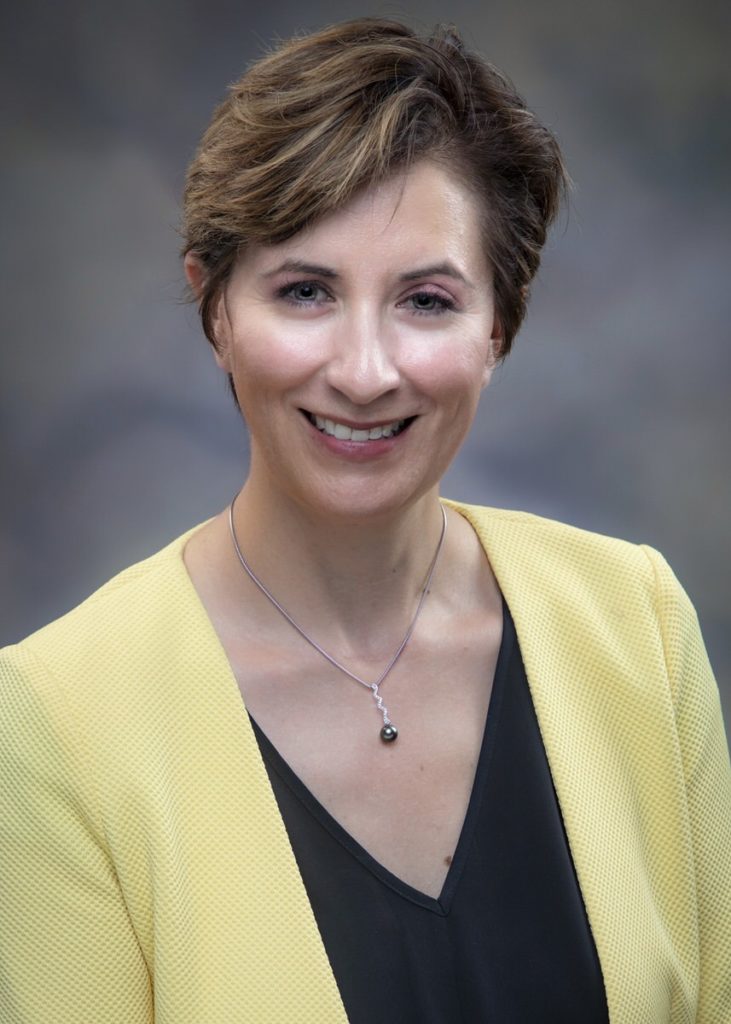 I have a broad background in obstetrics and gynecology, with specific training and expertise in maternal fetal medicine. My research interests include maternal mortality/maternal critical care, preterm birth prevention, and management of gestational diabetes. In addition to clinical trials, I have an interest in educational research stemming from a professional interest in resident education, curriculum design and simulation.
I have a broad background in obstetrics and gynecology, with specific training and expertise in maternal fetal medicine. My research interests include maternal mortality/maternal critical care, preterm birth prevention, and management of gestational diabetes. In addition to clinical trials, I have an interest in educational research stemming from a professional interest in resident education, curriculum design and simulation.
As PI or co-Investigator on several Department of Defense-funded grants, I successfully administered the projects (e.g. staffing, research protections, budget), collaborated with other researchers, and produced several peer-reviewed publications.
Despite my background and experience with research, there are gaps in my knowledge that were preventing me from reaching my goals of becoming more independent in study design and data analysis, learning how to compete for National Institutes of Health funding, and developing a large collaborative research program with the aim of competing for entrance into the National Institute of Child Health and Human Development Maternal Fetal Medicine Unit Network.
My purpose for applying to the MSCI-TS program was to fill in my knowledge gaps to independently lead my work and serve as a research mentor to GME learners. My long-term goal was to build a regional Maternal Fetal Medicine research network among the leading research institutions with the goals of using translational science in the promotion of maternal-child health and prevention of disease in South Texas.
What has been the highlight of graduate school so far? Have you won any awards or have there been any achievements you’ve been proud of?
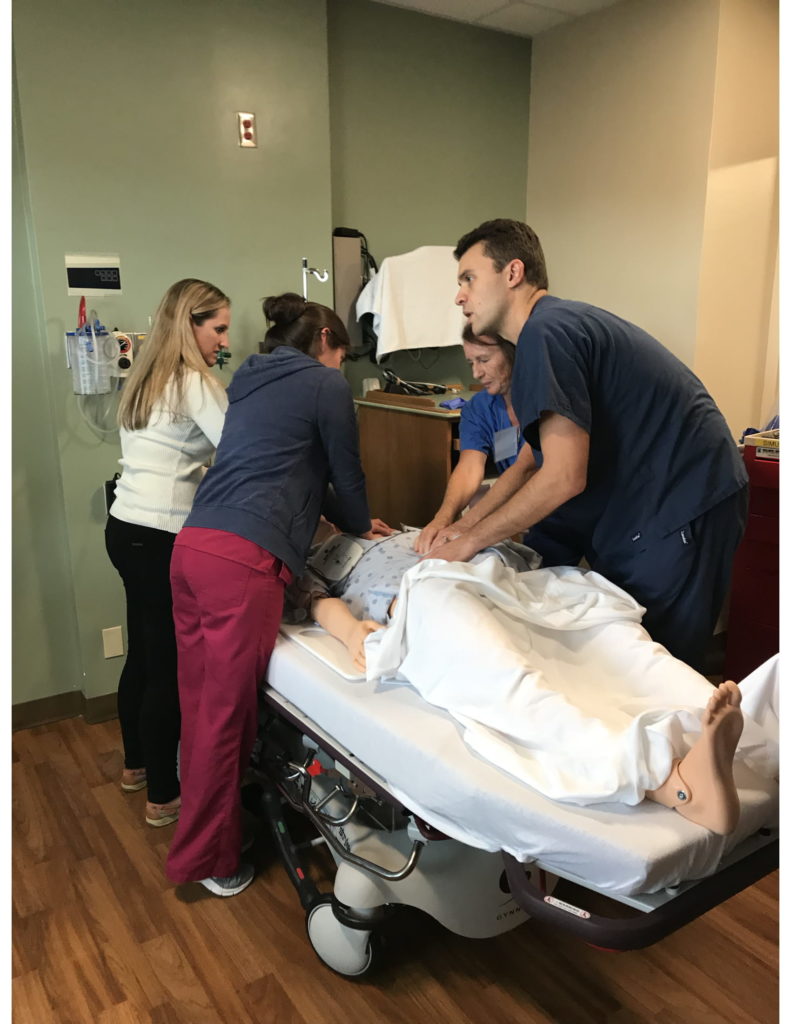 The highlight of my time at the graduate school has been learning from very experienced and passionate professors, and getting mentored by my supervising faculty, Dr. Patrick Ramsey. I was honored with the Spring 2019 GSBS Travel Award to support my travel to the Association of Professors in Gynecology and Obstetrics/Council of Resident Education in Obstetrics and Gynecology Annual Meeting held February 26 – March 1, 2019 in New Orleans, Louisana. I presented an oral breakout session on March 1, 2019 entitled “Playing with the Band: How to Achieve Consensus on Needs Assessments Using the Modified Delphi Technique.”
The highlight of my time at the graduate school has been learning from very experienced and passionate professors, and getting mentored by my supervising faculty, Dr. Patrick Ramsey. I was honored with the Spring 2019 GSBS Travel Award to support my travel to the Association of Professors in Gynecology and Obstetrics/Council of Resident Education in Obstetrics and Gynecology Annual Meeting held February 26 – March 1, 2019 in New Orleans, Louisana. I presented an oral breakout session on March 1, 2019 entitled “Playing with the Band: How to Achieve Consensus on Needs Assessments Using the Modified Delphi Technique.”
Please provide a few sentences summarizing your dissertation. What was the experience like for you?
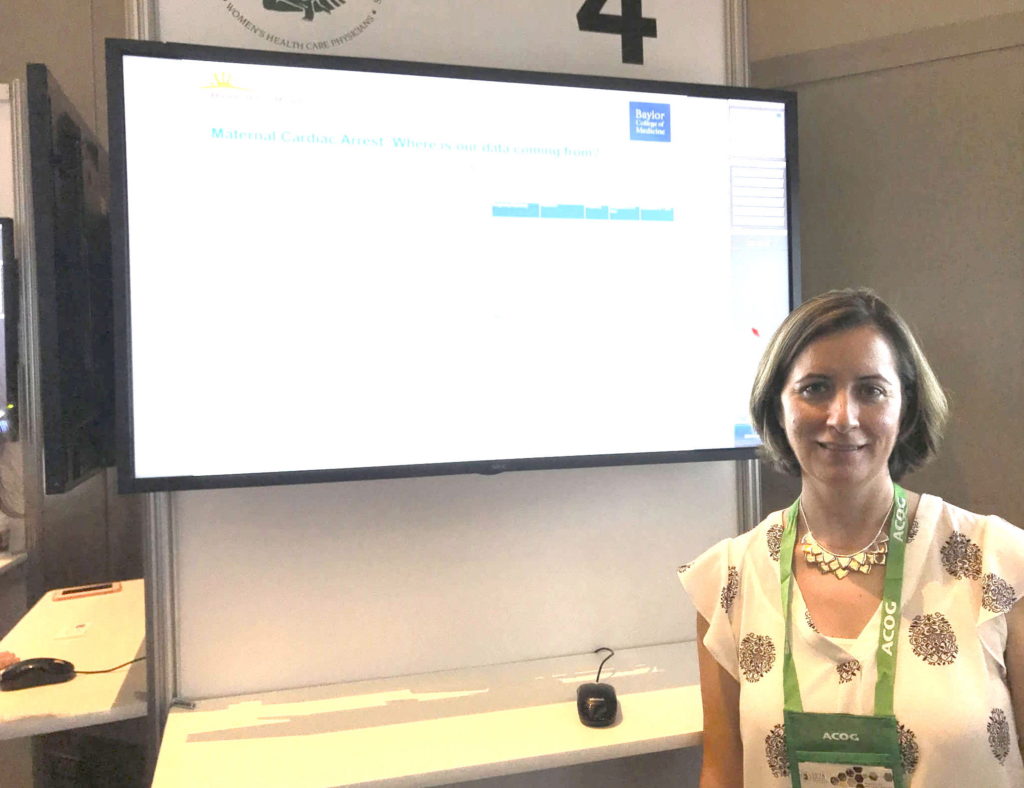 Through the MSCI program, I learned how to compete for NIH awards and was lucky to apply what I had learned to an R18 submission with my team. We were awarded a $1.9 million AHRQ Advances in Patient Safety through Simulation Research (R18) grant creating the “National Pregnancy Resuscitation Program (PRP): Development of a Simulation-based Maternal Cardiac Arrest Program for Credentialing Specialists and First Responders”. I am hoping to translate an educational curriculum teaching the management of maternal cardiac arrest to first responders and hospital personnel into improved maternal outcomes. The experience has been surreal and I have learned so much, and I’m so thankful to all the information that I was taught during the MSCI program.
Through the MSCI program, I learned how to compete for NIH awards and was lucky to apply what I had learned to an R18 submission with my team. We were awarded a $1.9 million AHRQ Advances in Patient Safety through Simulation Research (R18) grant creating the “National Pregnancy Resuscitation Program (PRP): Development of a Simulation-based Maternal Cardiac Arrest Program for Credentialing Specialists and First Responders”. I am hoping to translate an educational curriculum teaching the management of maternal cardiac arrest to first responders and hospital personnel into improved maternal outcomes. The experience has been surreal and I have learned so much, and I’m so thankful to all the information that I was taught during the MSCI program.
5) Why are you passionate about your research topic? How did you first become interested in it?
In 2016 I received a call from a former resident of mine who was a staff OB/GYN at Eglin Air Force Base. She was very frustrated that BLS and ACLS courses did not mention or train providers on recommendations on how to manage cardiac arrest. At the same time that she and I were brainstorming ideas to remedy this, data was emerging that the United States is the only developed country in the world with a rising maternal mortality rate; in fact, 3 in 5 maternal deaths are preventable. A large portion of these deaths in the U.S. are from acquired cardiac disease that goes undetected and can lead to maternal cardiac arrest. Maternal cardiac arrest has now surpassed pediatric cardiac arrest in 5-17 year olds. Until recently, only 2/8 national databases that tracked cardiac arrest included pregnancy and postpartum in their data fields. It is very likely this event is underreported.
Unfortunately, their are very few providers that know how to handle a pregnant women with cardiac arrest – not even obstetricians. In 2012, the American Heart Association published specific recommendations on how to care for a pregnant women in cardiac arrest recognizing that there are some very important but distinct considerations for this special population. For example, many providers think you have to tilt or wedge a pregnant women 45 degrees to help get blood back to the heart, but chest compression become virtually useless if you do this. The current recommendation is something called “left uterine displacement” which is done to remove the uterus off the inferior vena cava flat on her back so you don’t compromise chest compression. There are several other recommendations that differ from regular life support, and most clinicians are unaware of these recommendations. Probably the most significant being that a cesarean delivery within 5 minutes of the arrest to save a mom’s life.
This means that every pregnant women in her 2nd and 3rd trimester of pregnancy who is being brought into an ER should undergo a cesarean delivery immediately when she hit the doors….and this is simply not happening. Through development of the Obstetric Life Support curriculum, I hope to make all providers who may come across a pregnant women with cardiac arrest aware of the recommendations.
My passion for bringing more awareness to rising maternal mortality rates, and cardiac disease in pregnancy was further solidified when I personally suffered from a heart attack in the spring of 2017. I was eventually diagnosed with Spontaneous Coronary Artery Dissection or SCAD, which is becoming recognized as a more common reason for heart attacks in reproductive age women, including pregnancy and postpartum. This experience emboldened me to make sure that every provider is aware of the unique physiology of pregnancy, and how the modifications to CPR are crucial to increase survival in maternal cardiac arrest.
6) What’s next?
I will continue in my current position as Chief of Research, Education and International Development and Associate Professor at Baylor College of Medicine at The Children’s Hospital of San Antonio. I am currently the PI of 2 externally funded grants, including a randomized trial on the impact of culinary health education on gestational diabetes, and the co-PI of our AHRQ grant decribed above. In addition to my research role, I also continue to serve as a clinical Maternal Fetal Medicine specialists, and a site director for rotating OB/GYN residents.
7) Any advice for your fellow graduate students?
I would recommend taking full advantage of learning and working with the superb UTH faculty, and networking and collaborating with as many fellow graduate students as possible on research or coursework. I would also recommend presenting research in as many local, regional and national meetings as possible.


